Understanding Action Potentials in Neurons
1/26
There's no tags or description
Looks like no tags are added yet.
Name | Mastery | Learn | Test | Matching | Spaced |
|---|
No study sessions yet.
27 Terms
What is the resting membrane potential of neurons?
-70 mV
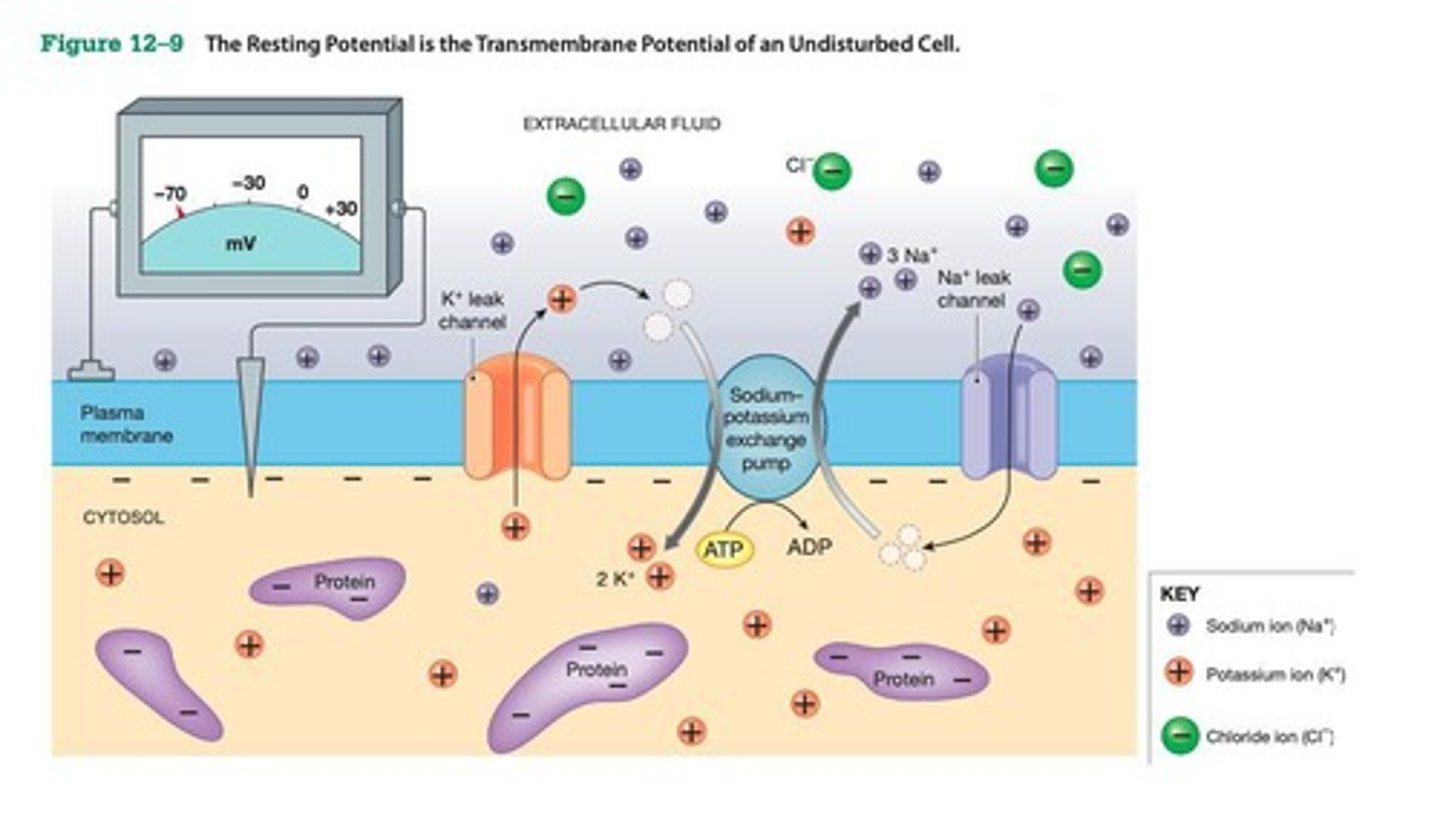
What are the two main ways neurons change their membrane potential?
Through action potentials and graded/local/postsynaptic potentials.
What is the role of dendrites in a neuron?
They receive inputs from other neurons.
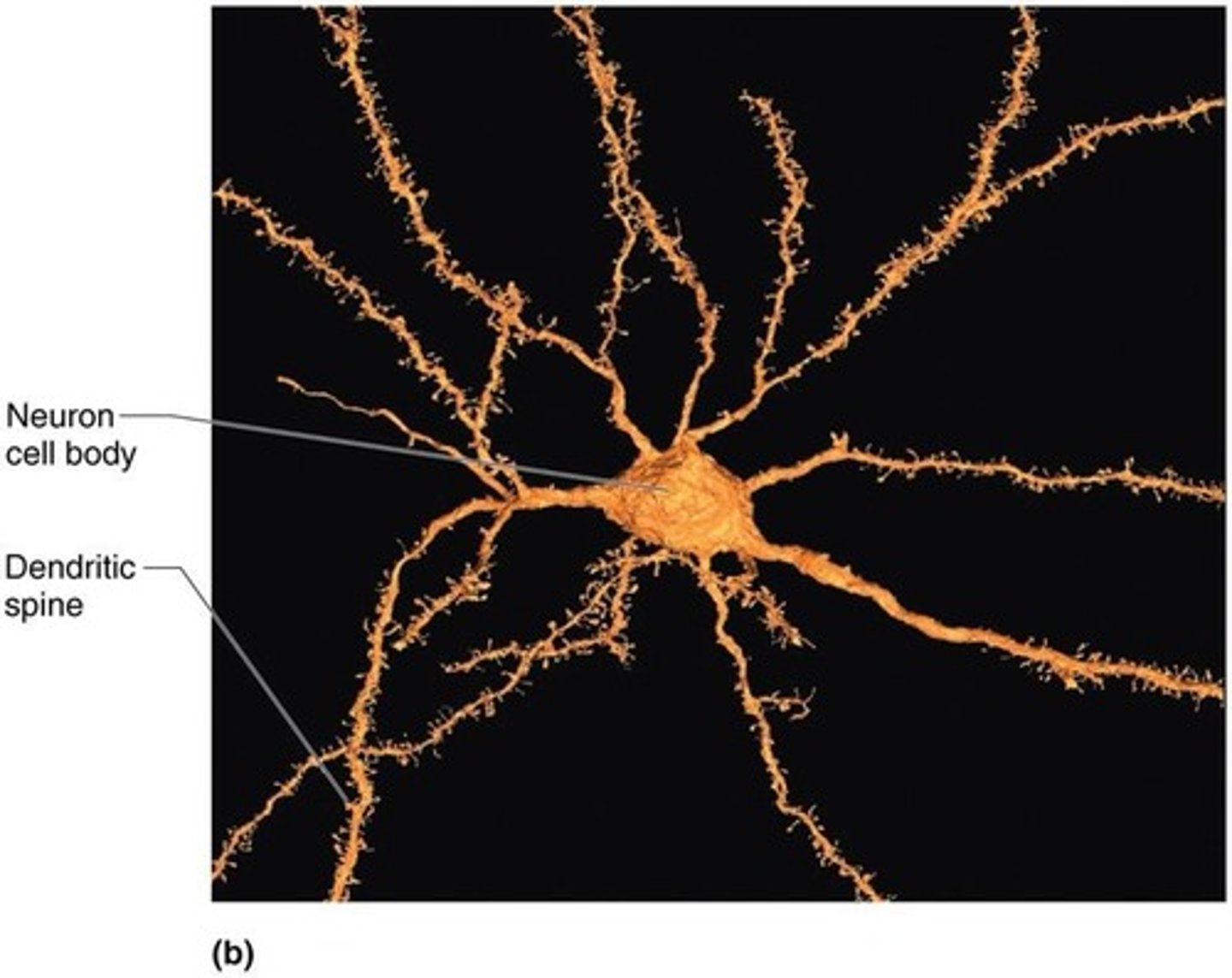
What is the function of the cell body in a neuron?
It integrates all the inputs it receives, up to approximately 10,000.
What is the role of the axon in a neuron?
It sends output signals to the next neuron and generates and propagates action potentials.
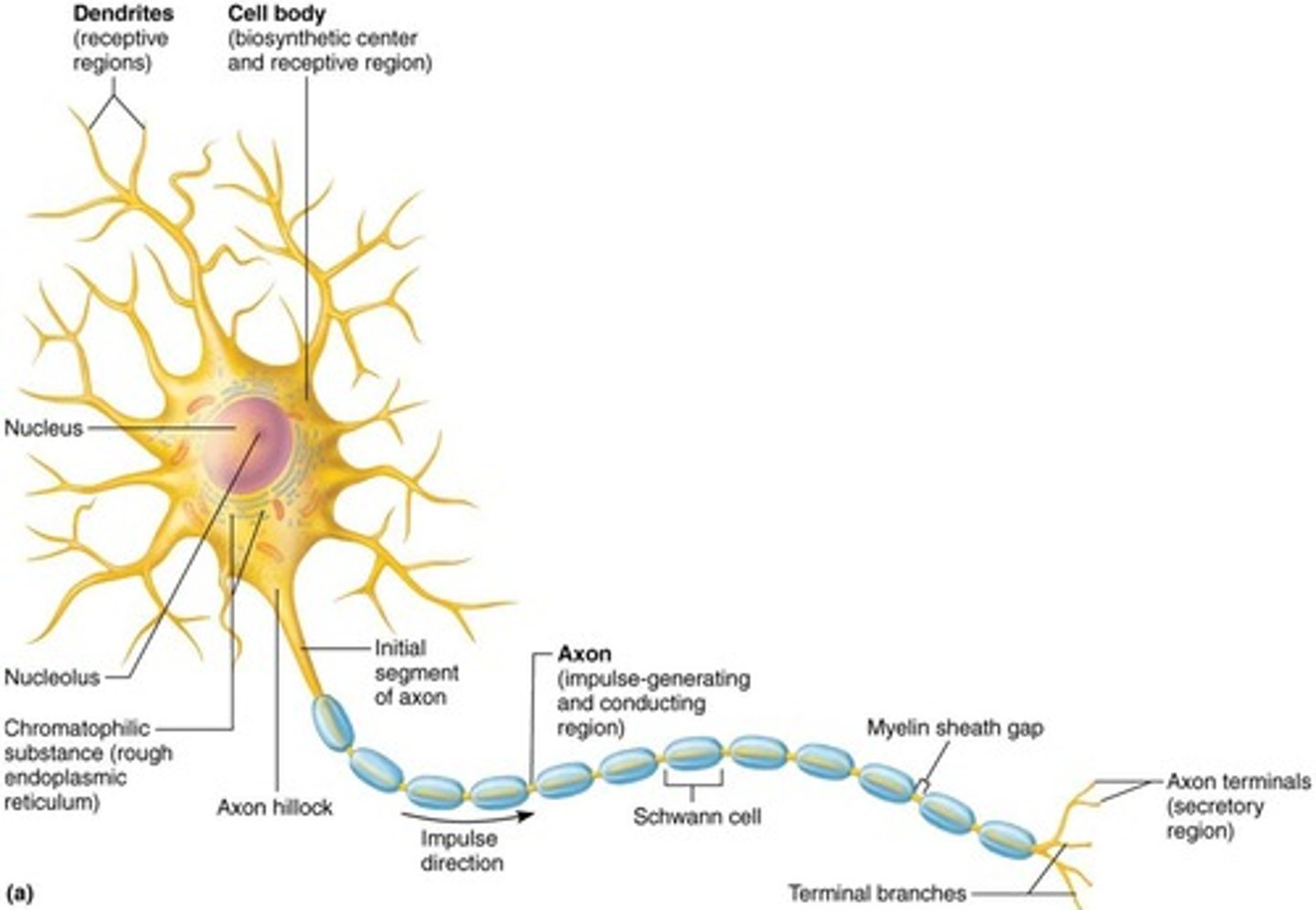
What is depolarization in terms of membrane potential?
It is when the inside of the membrane becomes more positive, usually due to Na+ entering the neuron.
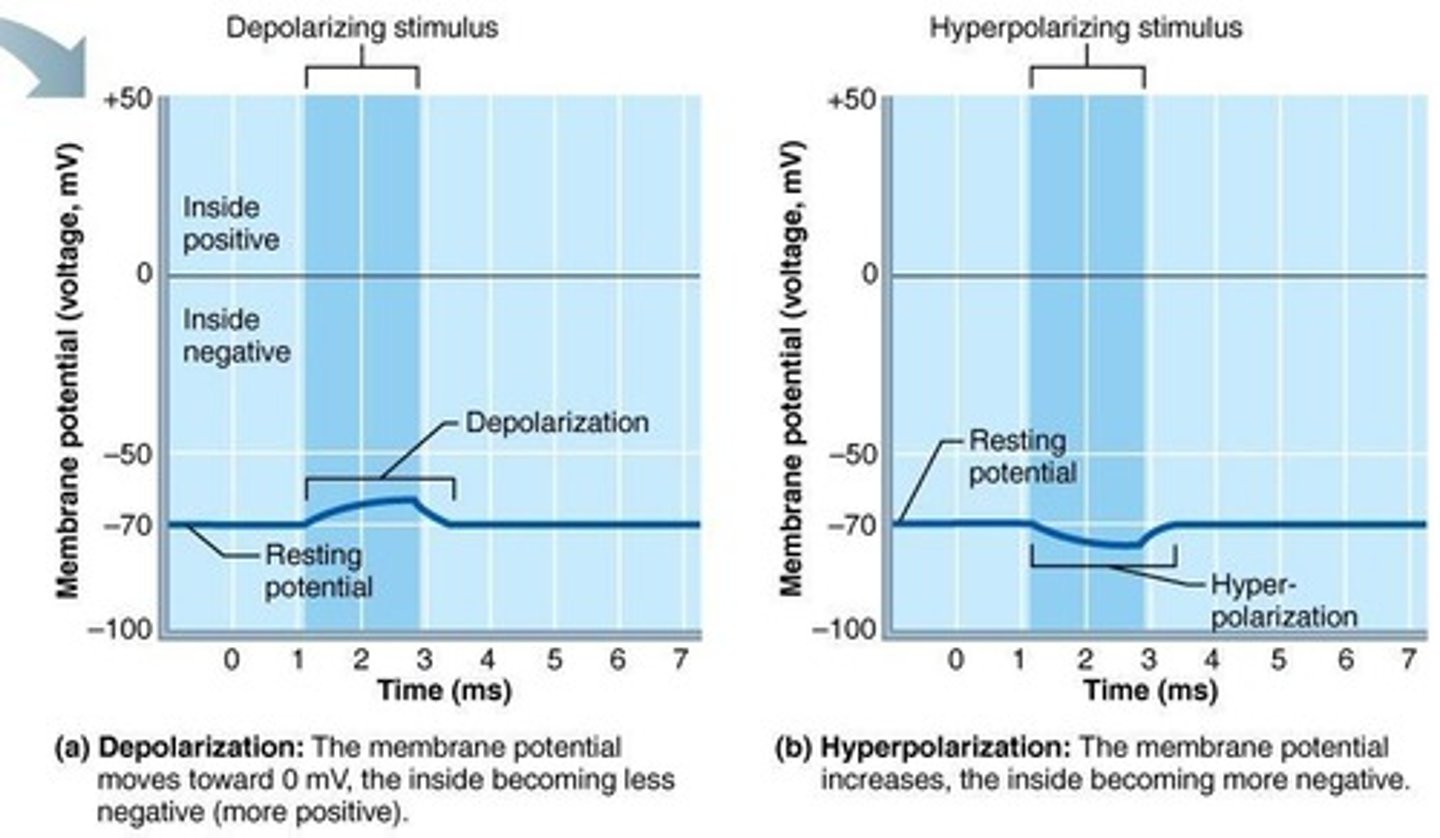
What is repolarization?
It is the return to resting membrane potential from being depolarized.
What is hyperpolarization?
It is when the inside of the membrane becomes more negative, usually due to K+ leaving the neuron.
What triggers an action potential?
A graded potential that causes enough depolarization to reach the threshold of -50 mV.
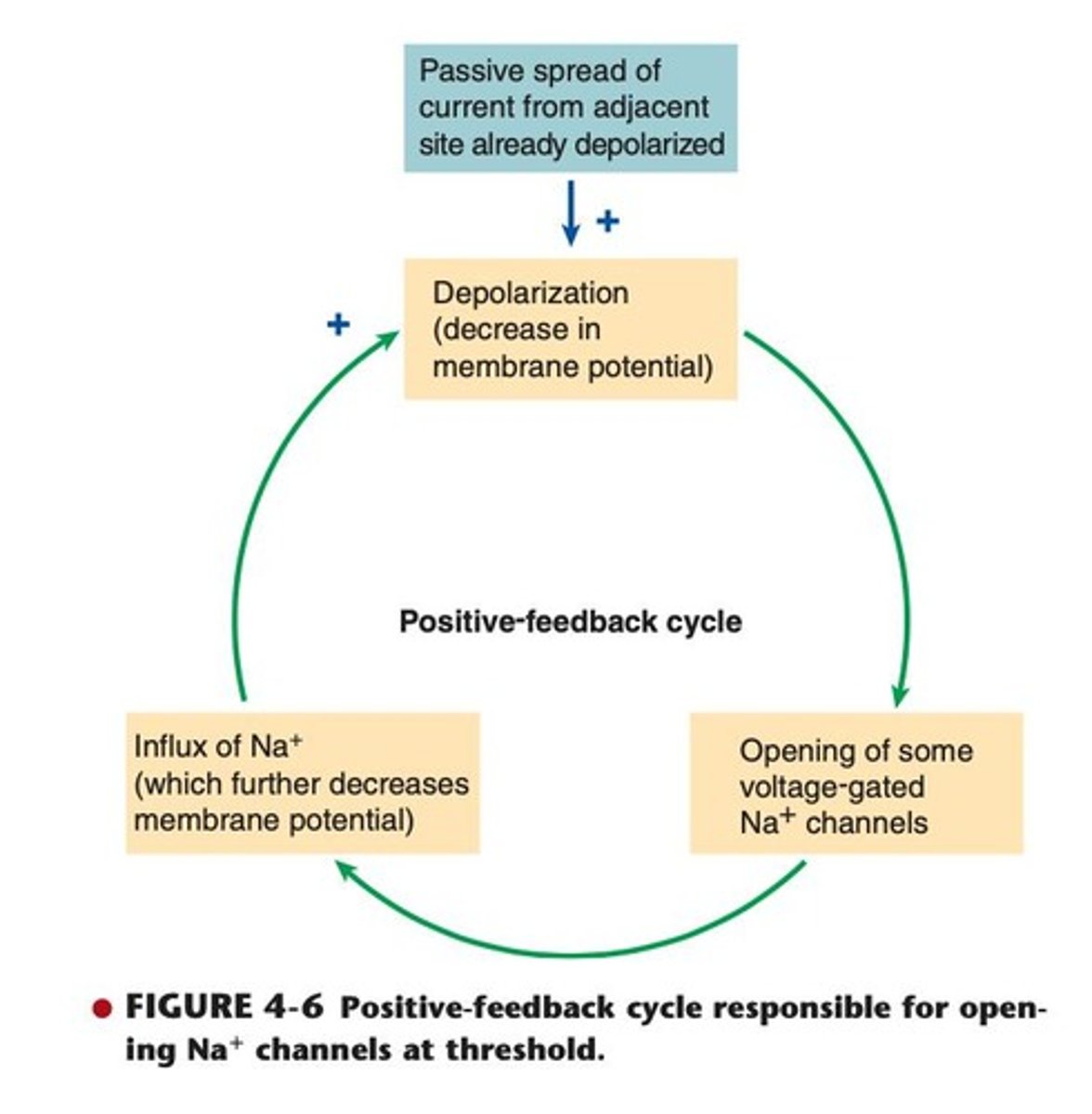
Where are action potentials initiated in a neuron?
In the axon hillock (axon initial segment).
What does 'all or nothing' mean in the context of action potentials?
It means that action potentials occur fully or not at all, regardless of the size of the graded potential.
How fast do action potentials typically occur?
They occur in 1-2 milliseconds.
What is the significance of voltage-gated sodium and potassium channels in action potentials?
They mediate the ion flow during action potentials.
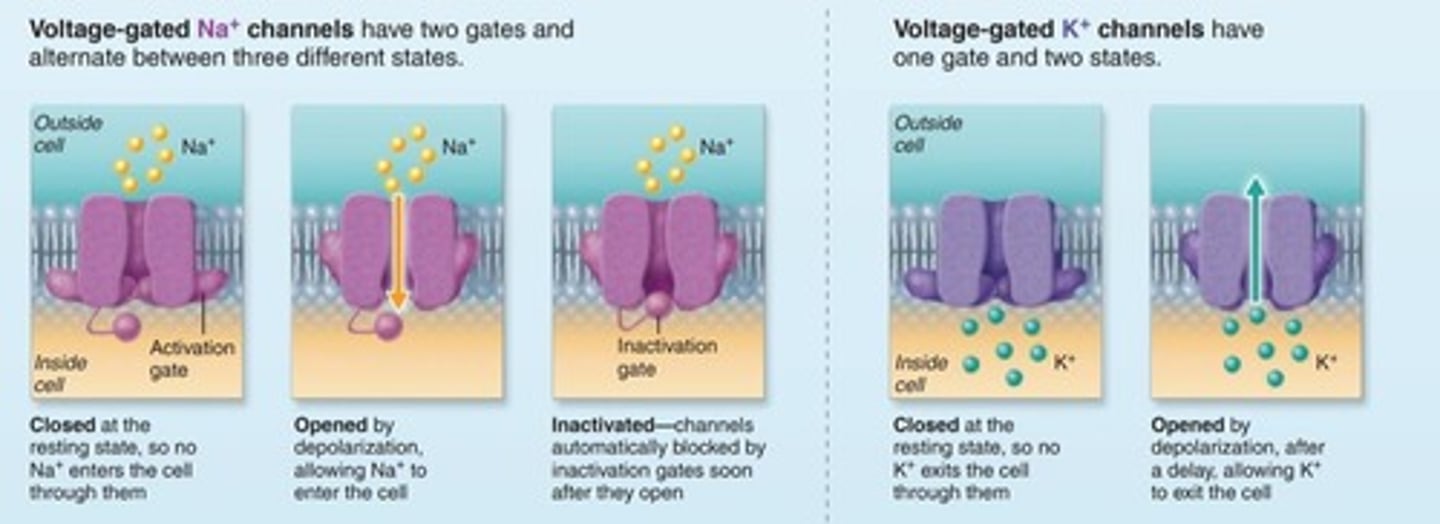
What are the activation states of voltage-gated Na+ channels?
They have three states: closed, open, and inactivated.
What happens during the absolute refractory period?
No further action potentials can be generated because Na+ channels are inactivated.
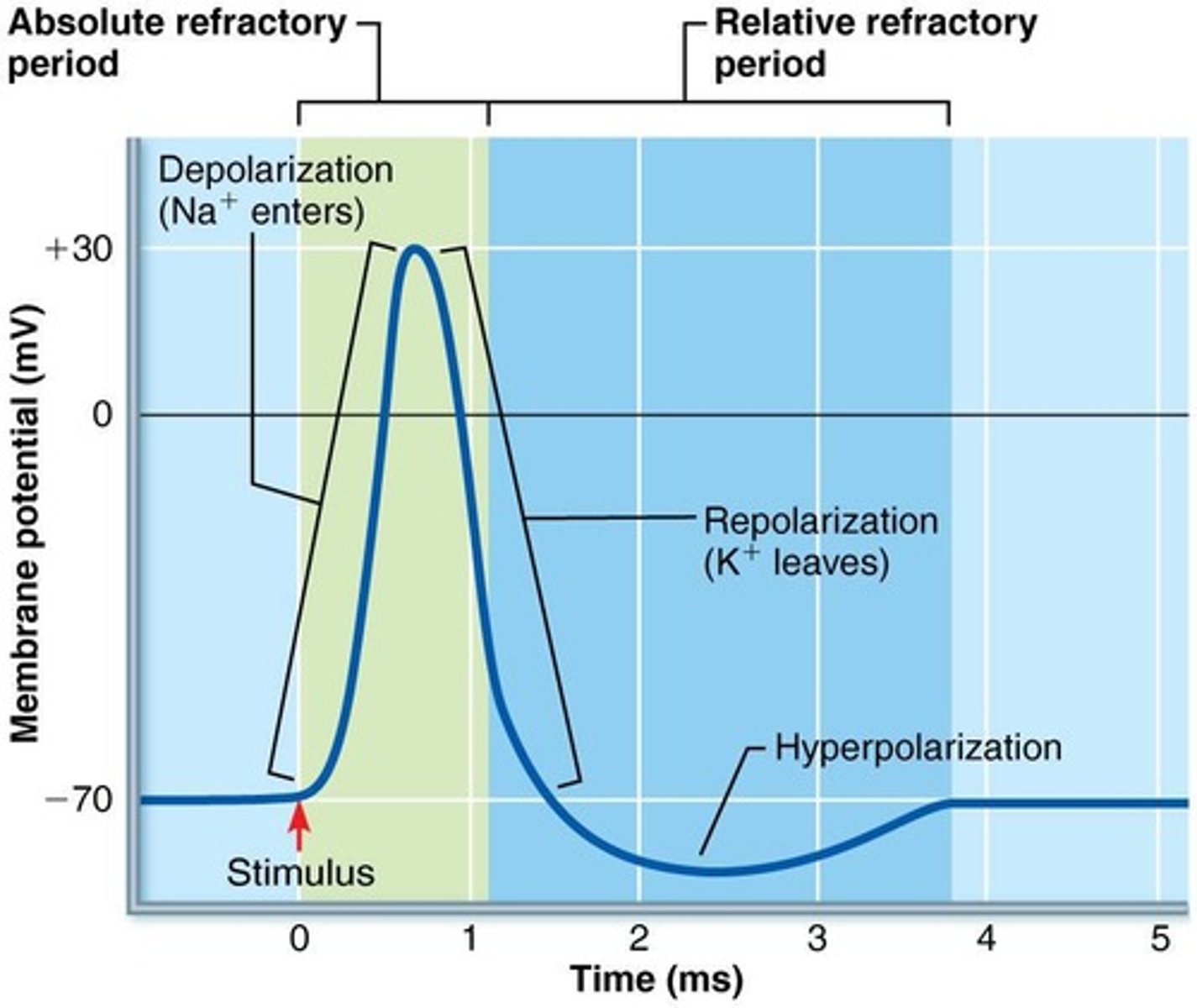
What is the relative refractory period?
An action potential can be generated if a large stimulus is applied, as some Na+ channels are closed.
What factors affect the speed of action potential propagation?
Axon diameter, temperature, and myelination.
How does myelination affect action potential propagation?
It insulates the membrane and speeds up propagation, allowing for saltatory conduction.
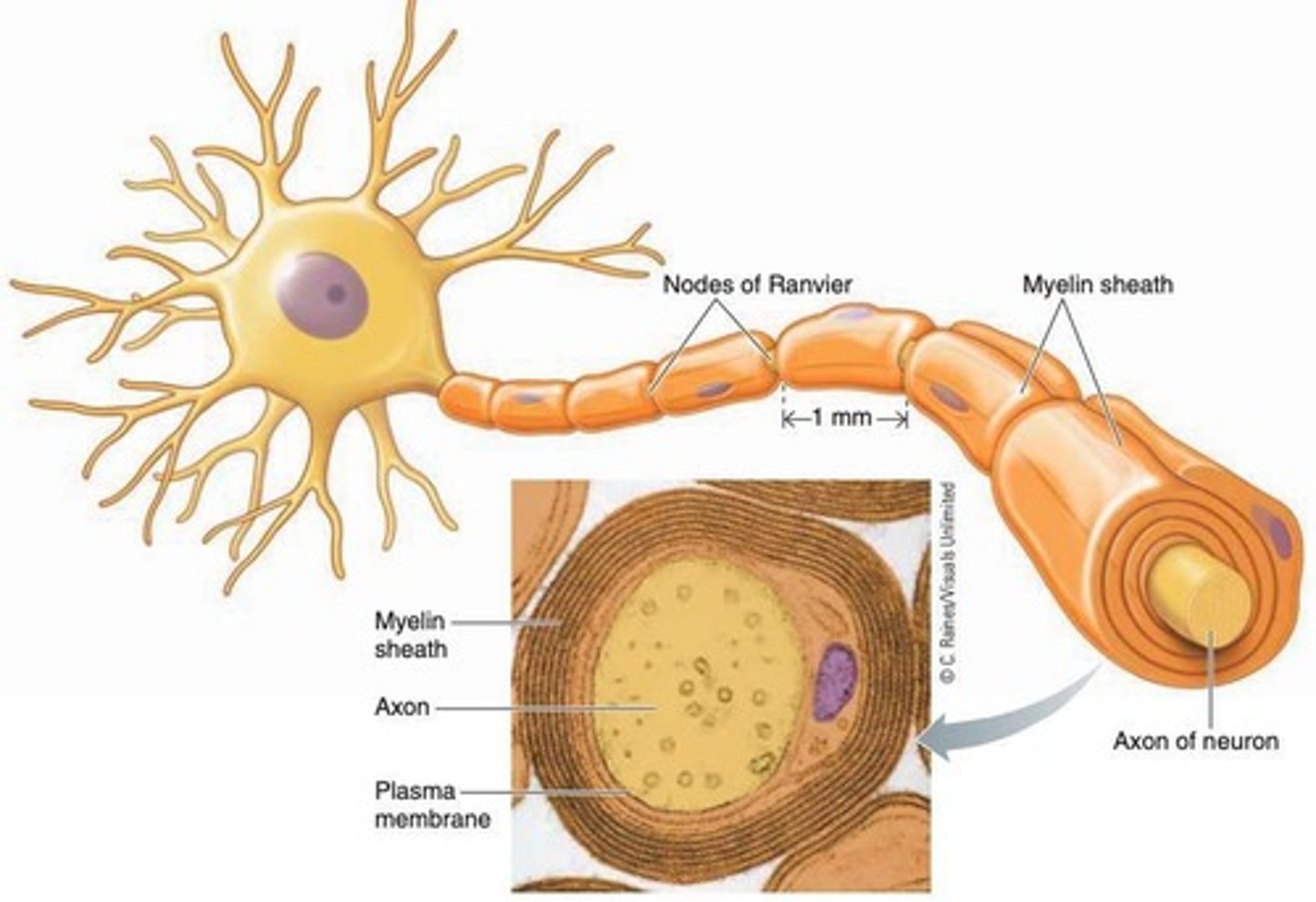
What is saltatory conduction?
It is when action potentials jump from one node of Ranvier to the next in myelinated fibers.
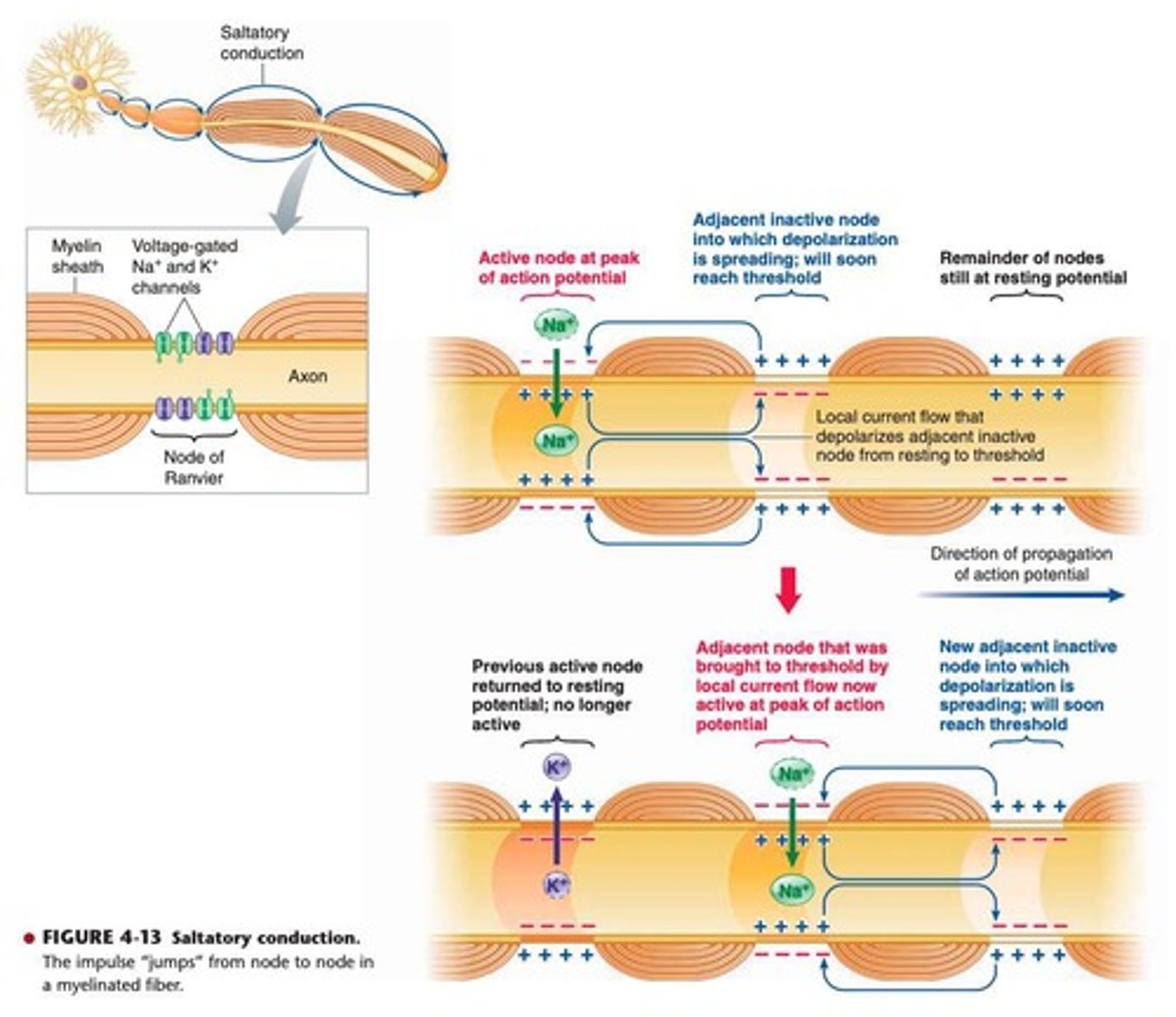
What happens in multiple sclerosis?
The immune system attacks the myelin, slowing or ceasing impulse conduction.
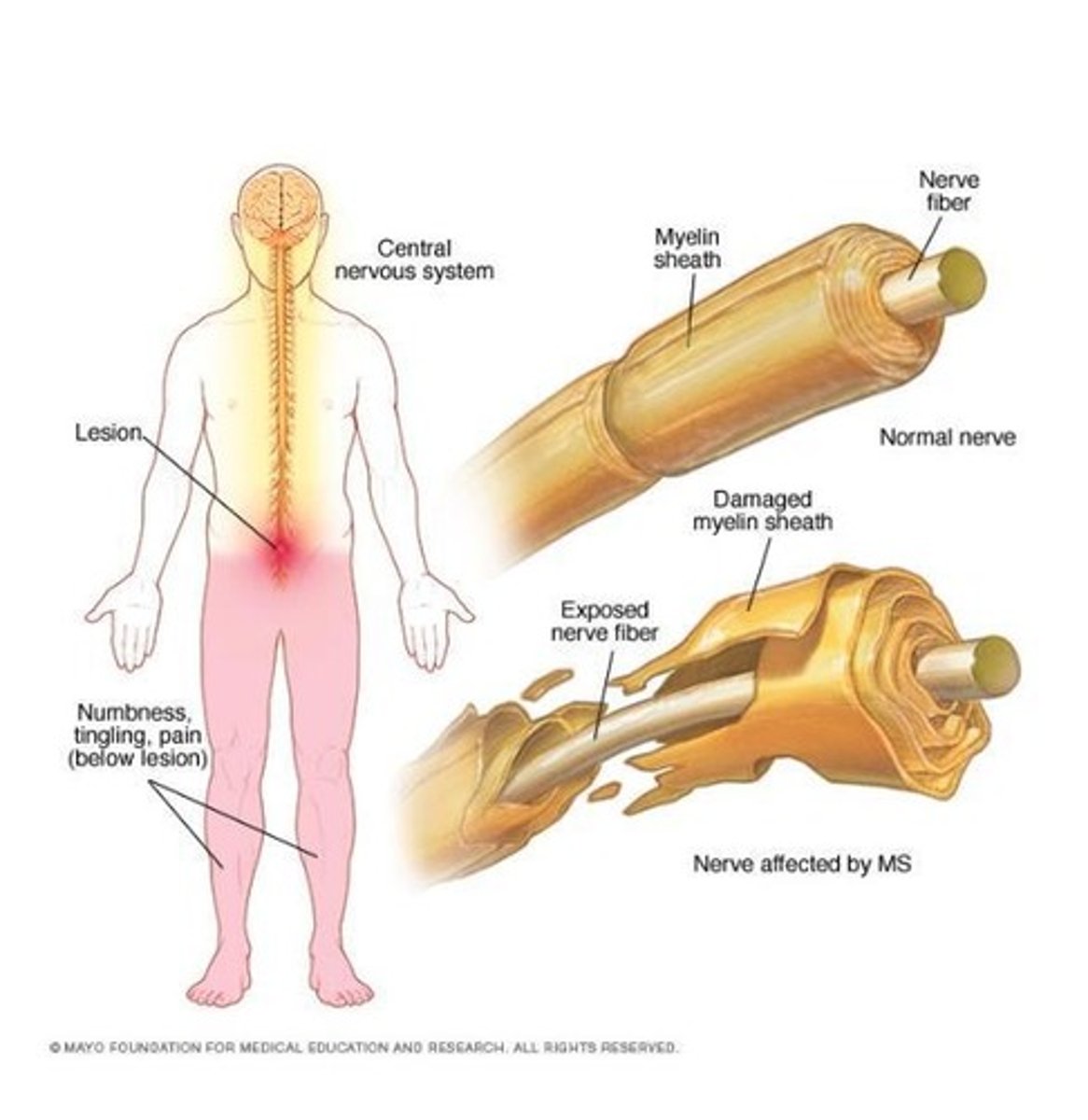
How do action potentials convey information?
Through their firing frequency; higher frequency indicates a stronger stimulus.
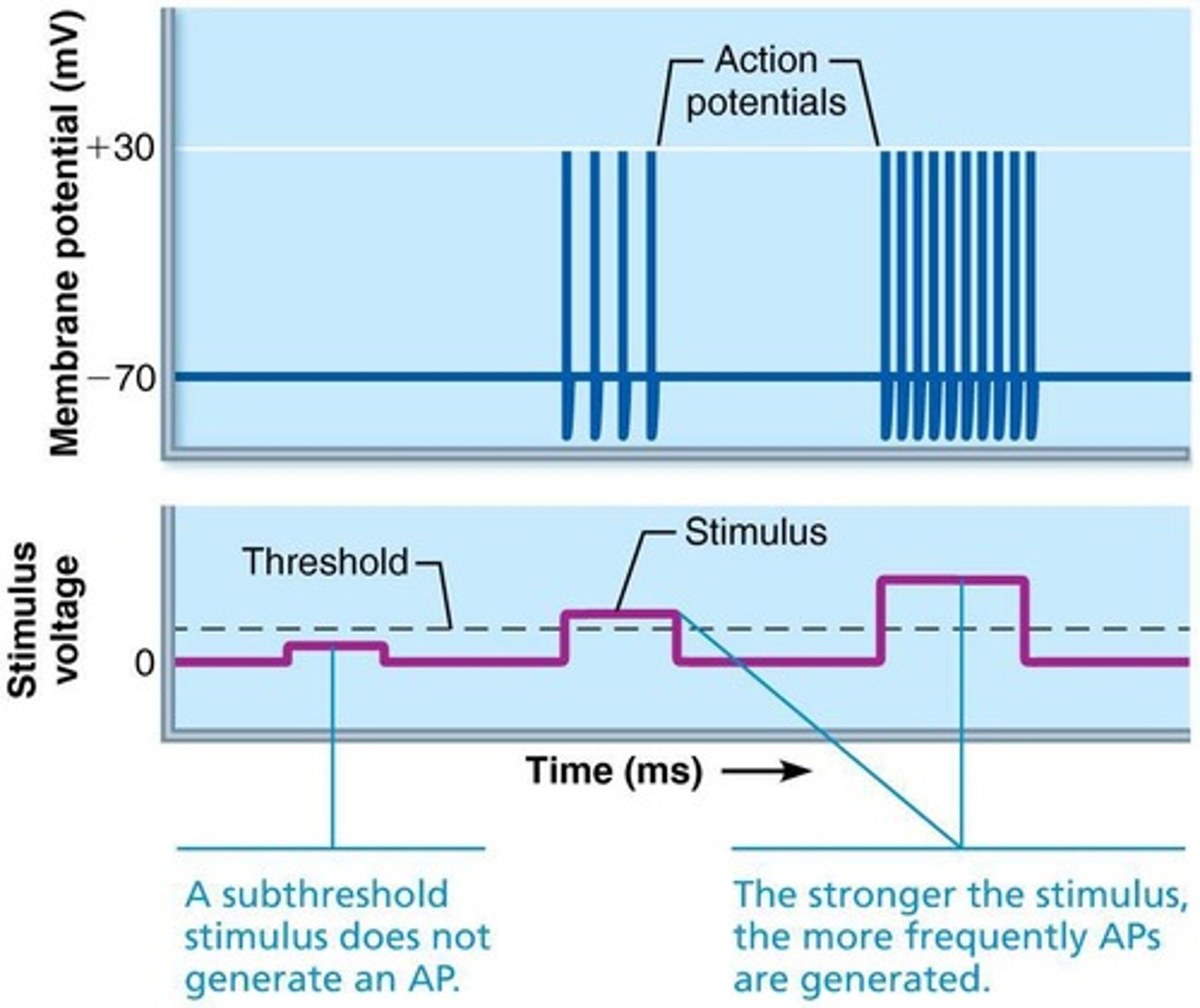
What occurs when an action potential reaches the end of the axon?
It generates a graded potential in the next neuron.
What is the threshold for triggering an action potential?
-50 mV.
What is the role of local anesthetics in relation to action potentials?
They block Na+ ion flow through voltage-gated Na+ channels, preventing depolarization.
What are graded potentials?
They are variable in size and cause the initial change in membrane potential.
What is the significance of the refractory periods in action potentials?
They ensure action potentials only travel in one direction.
What is the difference between depolarization and hyperpolarization?
Depolarization makes the inside of the membrane more positive, while hyperpolarization makes it more negative.